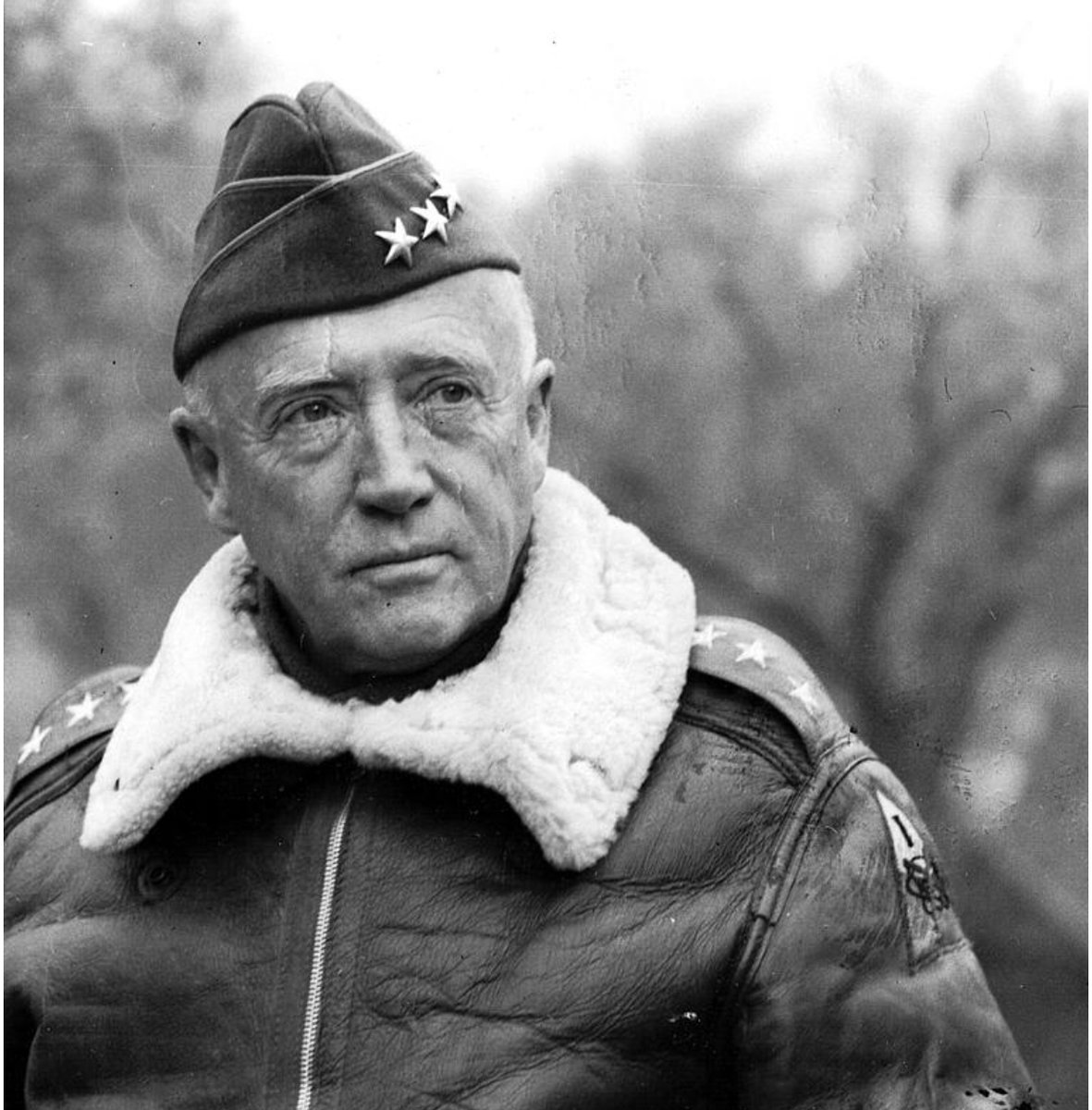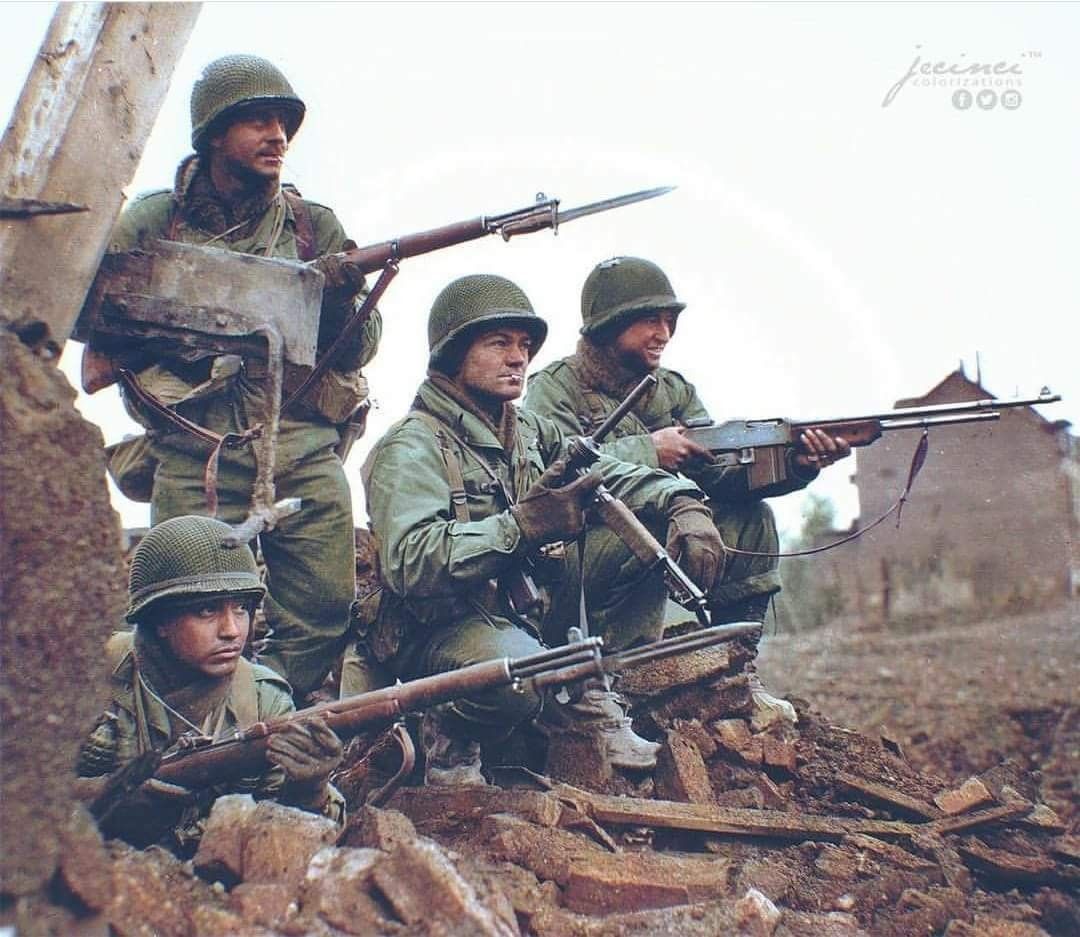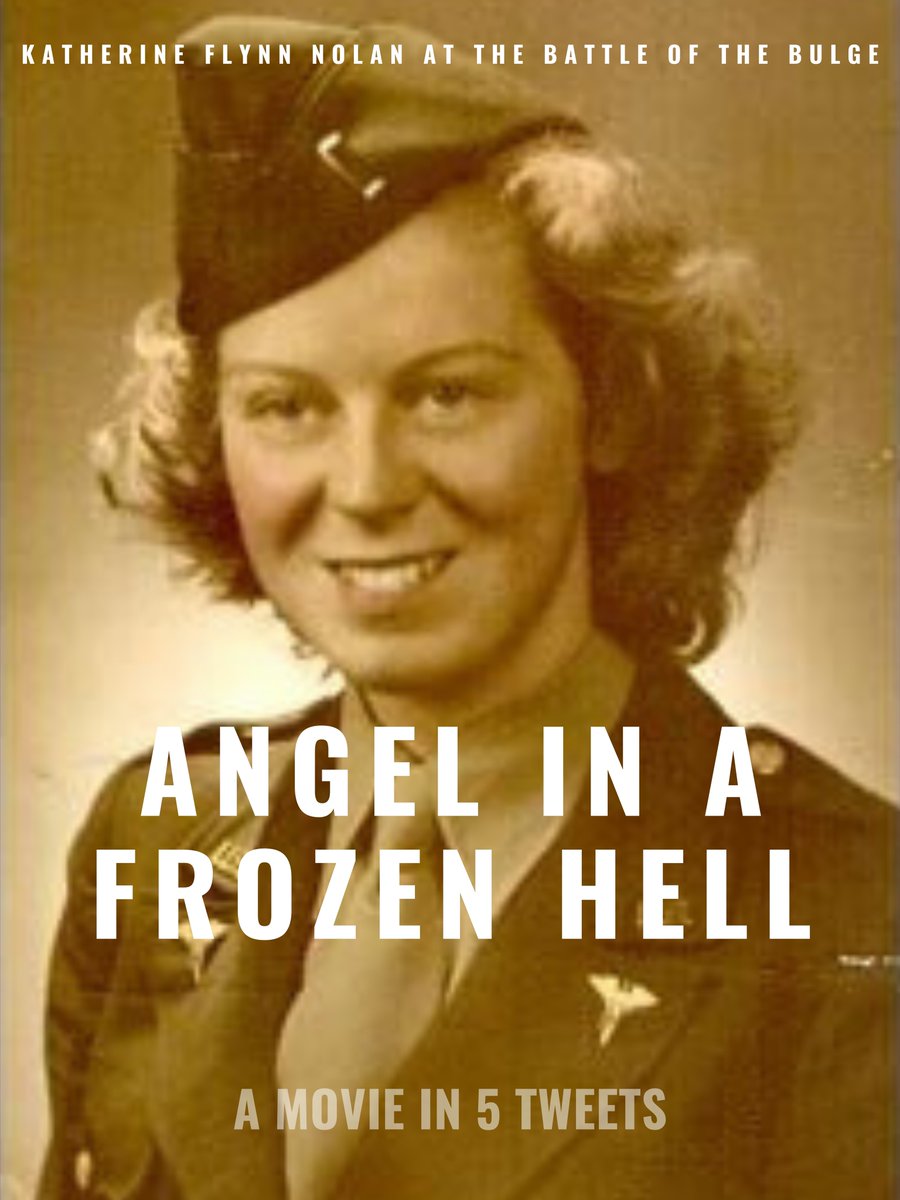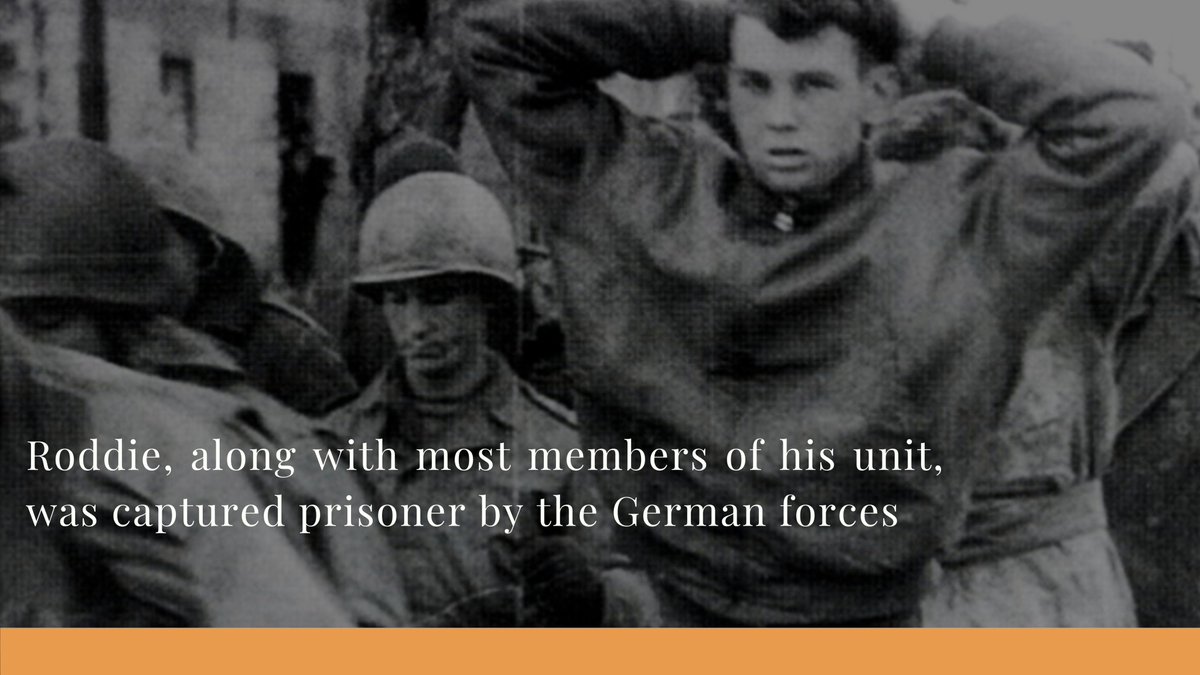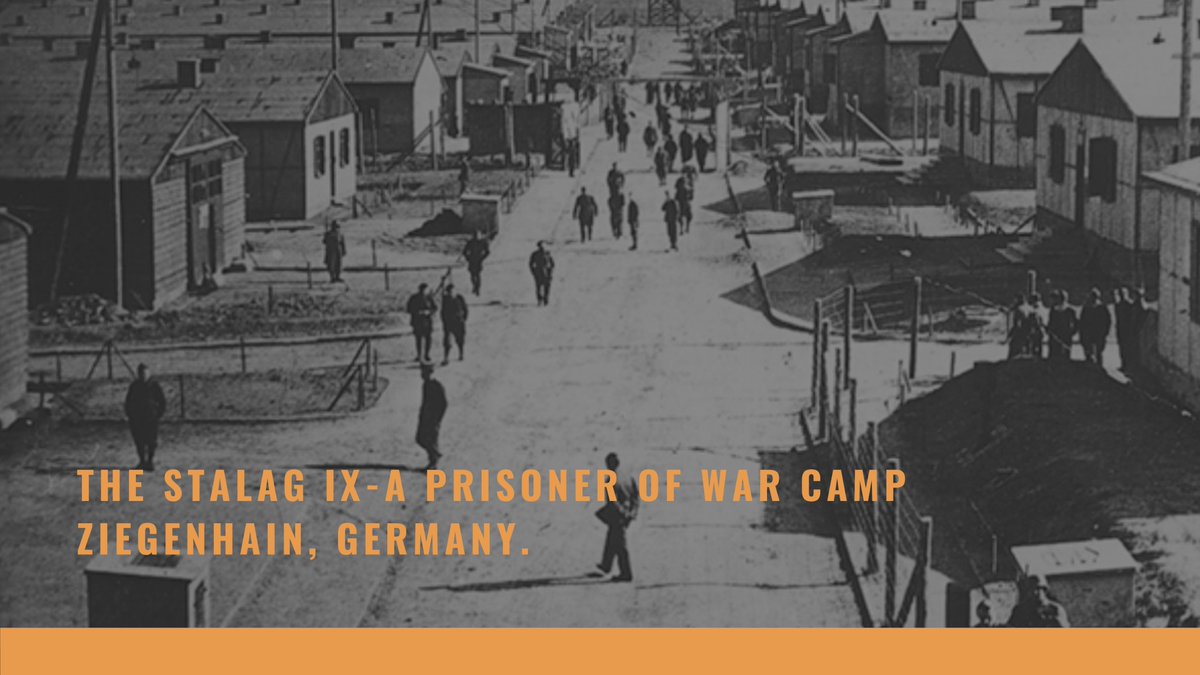
[1 of 9]
Back to the #BattleOfTheBulge.
Maxwell Taylor is just now returning to the fight from DC as his 101st is fully encircled.
Lawton Collins' VII Corps & Matthew Ridgway's XVIII ABN Corps are barely hanging on in the North.
Now another fabled General enters the drama.
Back to the #BattleOfTheBulge.
Maxwell Taylor is just now returning to the fight from DC as his 101st is fully encircled.
Lawton Collins' VII Corps & Matthew Ridgway's XVIII ABN Corps are barely hanging on in the North.
Now another fabled General enters the drama.
[2 of 9]
For the most part, the Allies are holding the line and keeping the Germans from advancing too far.
However, the German main push [see the center of this map] now starts to widen and moves north [6th Panzer Army] and south [5th Panzer Army] of Bastogne.
For the most part, the Allies are holding the line and keeping the Germans from advancing too far.
However, the German main push [see the center of this map] now starts to widen and moves north [6th Panzer Army] and south [5th Panzer Army] of Bastogne.
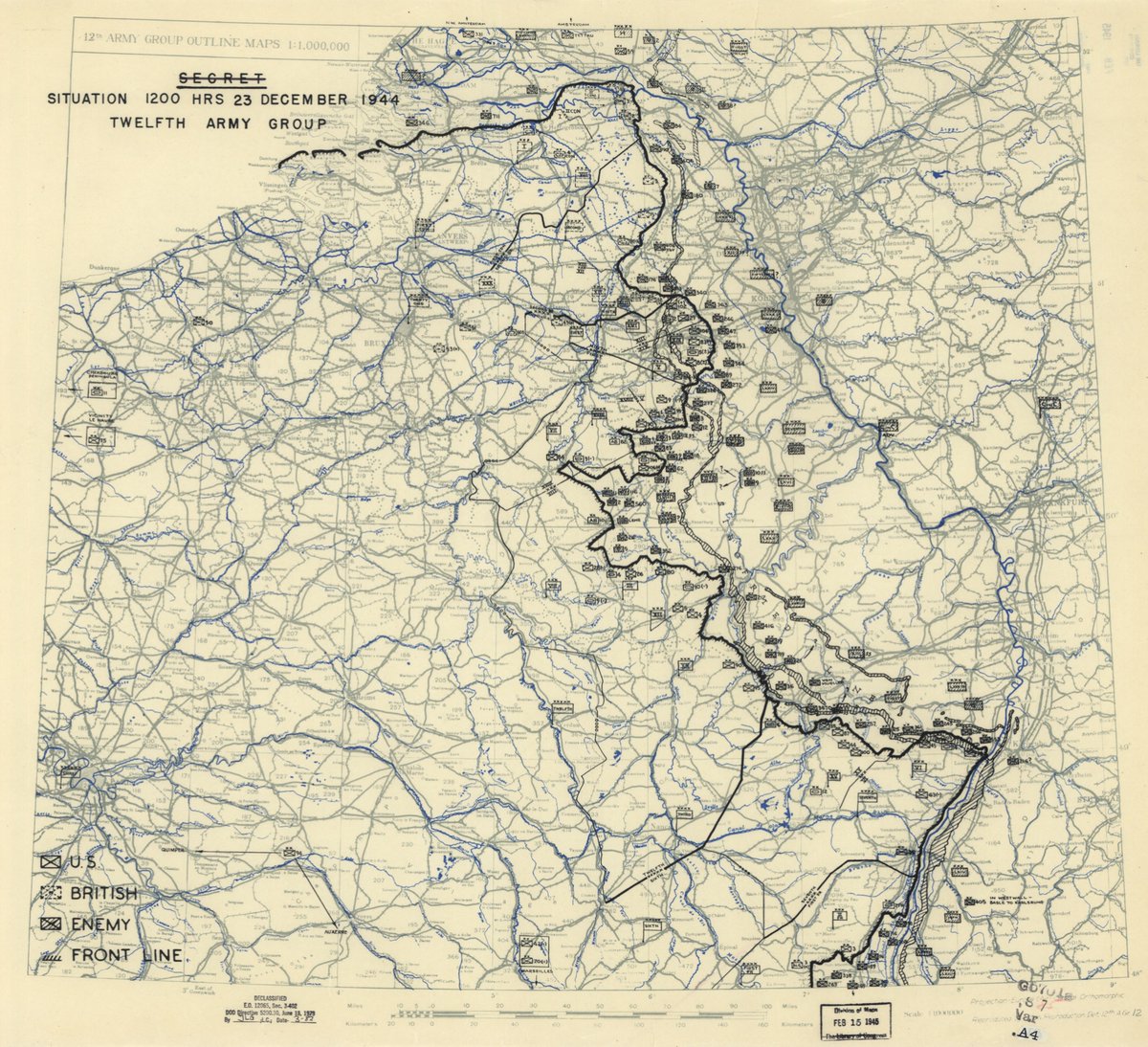
[4 of 9]
Patton's Third Army [4th Armored Division, 26th Infantry Division, and 80th Infantry Division] begins to move against the southern flank of the German main advance.
Patton's Third Army [4th Armored Division, 26th Infantry Division, and 80th Infantry Division] begins to move against the southern flank of the German main advance.
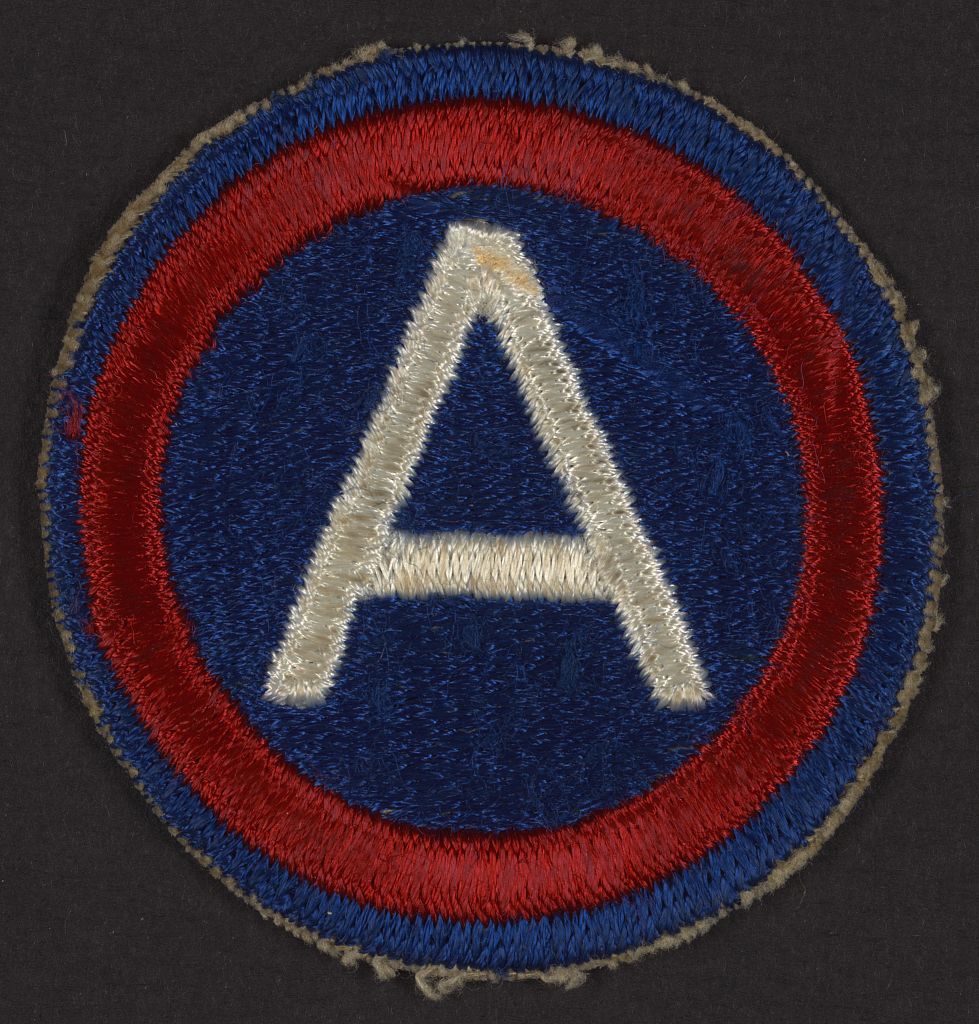
[5 of 9]
[Footnote: A Combat Command from 3rd Army's 10th Armored Division; what we would now consider ~ a brigade with Sherman Tanks, infantry, half-tracks; arrived in Bastogne BEFORE the 101st Airborne, so we should consider the amount of credit we give the 101st in Bastogne.]
[Footnote: A Combat Command from 3rd Army's 10th Armored Division; what we would now consider ~ a brigade with Sherman Tanks, infantry, half-tracks; arrived in Bastogne BEFORE the 101st Airborne, so we should consider the amount of credit we give the 101st in Bastogne.]
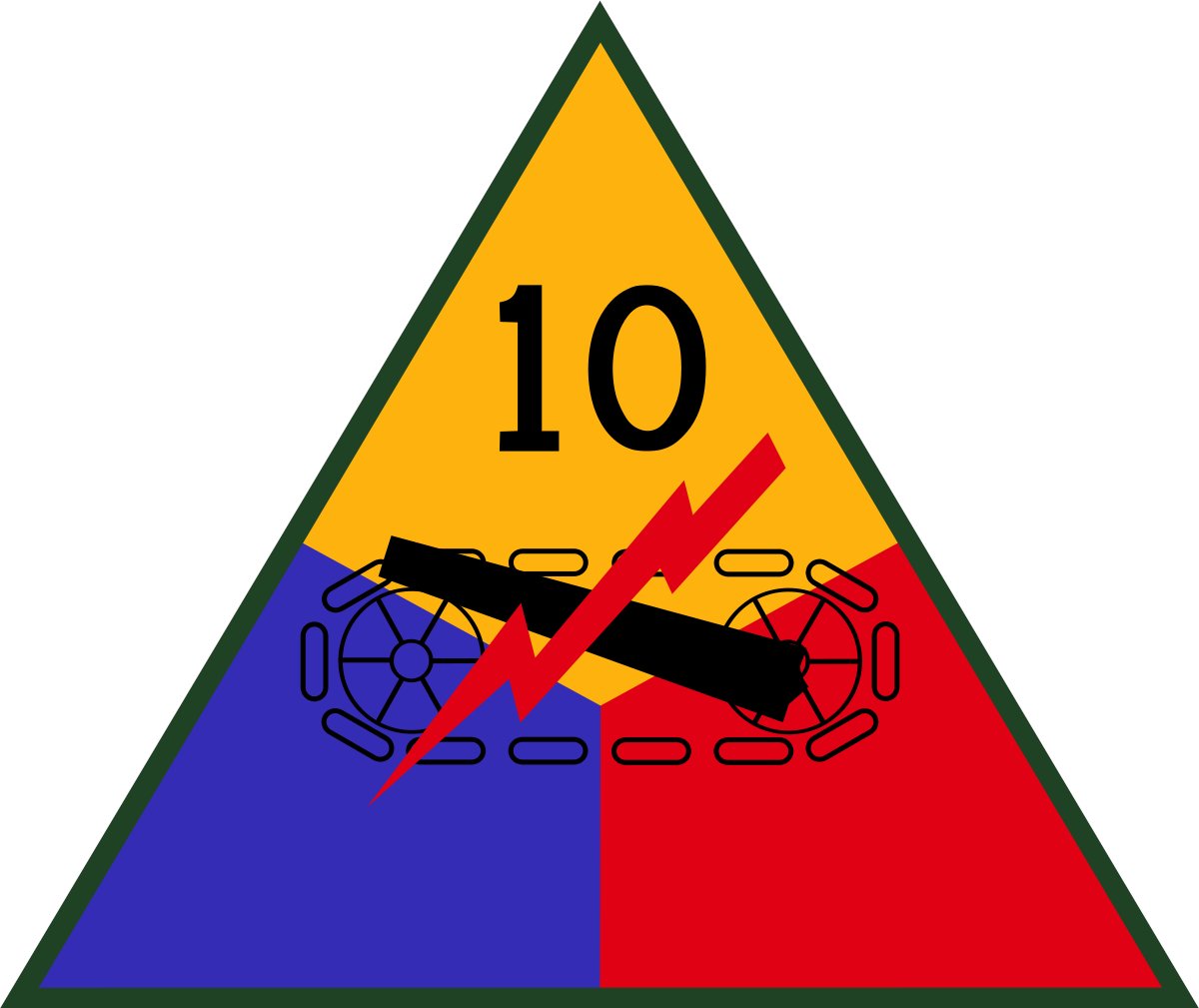
[6 of 9]
So, you ask, what has Patton been up to?
Well, since you asked....
After the invasion of Normandy in June, Patton's Third Army led the breakthrough of German defenses and cleared the way across northern France.
So, you ask, what has Patton been up to?
Well, since you asked....
After the invasion of Normandy in June, Patton's Third Army led the breakthrough of German defenses and cleared the way across northern France.
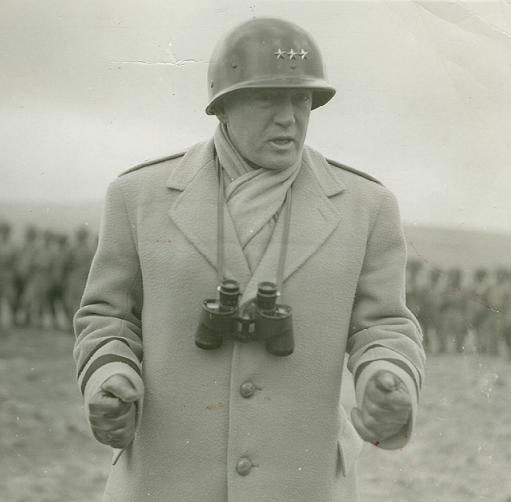
[7 of 9]
When the Germans launched their counteroffensive in the Ardennes on December 16th, 1944, Patton stood ready to divert Third Army northward and attack the German southern flank.
When the Germans launched their counteroffensive in the Ardennes on December 16th, 1944, Patton stood ready to divert Third Army northward and attack the German southern flank.
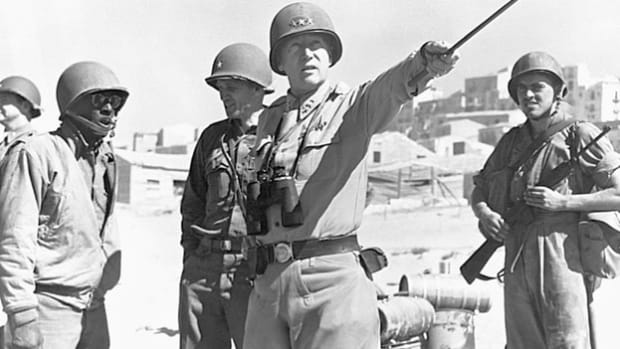
[8 of 9]
Look, you remember that scene from the movie "Patton."
Patton gets an update on the Battle of the Bulge and tells Bradley he can attack with 3 divisions in 48 hours.
In reality, by the time of this discussion, Patton had his Third Army already prepared to move out.
Look, you remember that scene from the movie "Patton."
Patton gets an update on the Battle of the Bulge and tells Bradley he can attack with 3 divisions in 48 hours.
In reality, by the time of this discussion, Patton had his Third Army already prepared to move out.
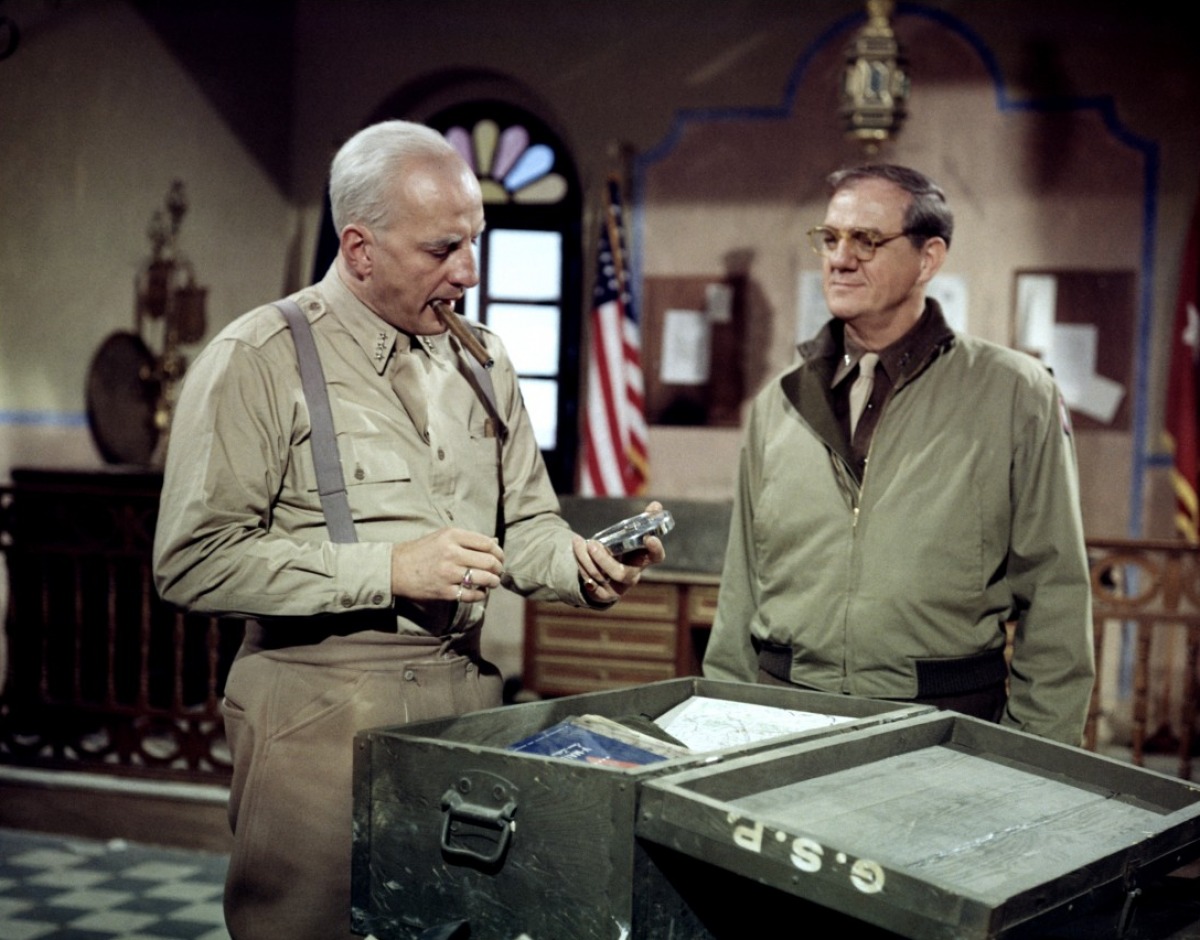
[FINAL]
With cratered roads and foul weather, it's going to take 3 days for Patton to get his forces fully in position, moving from south to north.
Nonetheless, in these days to come, these men will prove masters of their fate.
With cratered roads and foul weather, it's going to take 3 days for Patton to get his forces fully in position, moving from south to north.
Nonetheless, in these days to come, these men will prove masters of their fate.
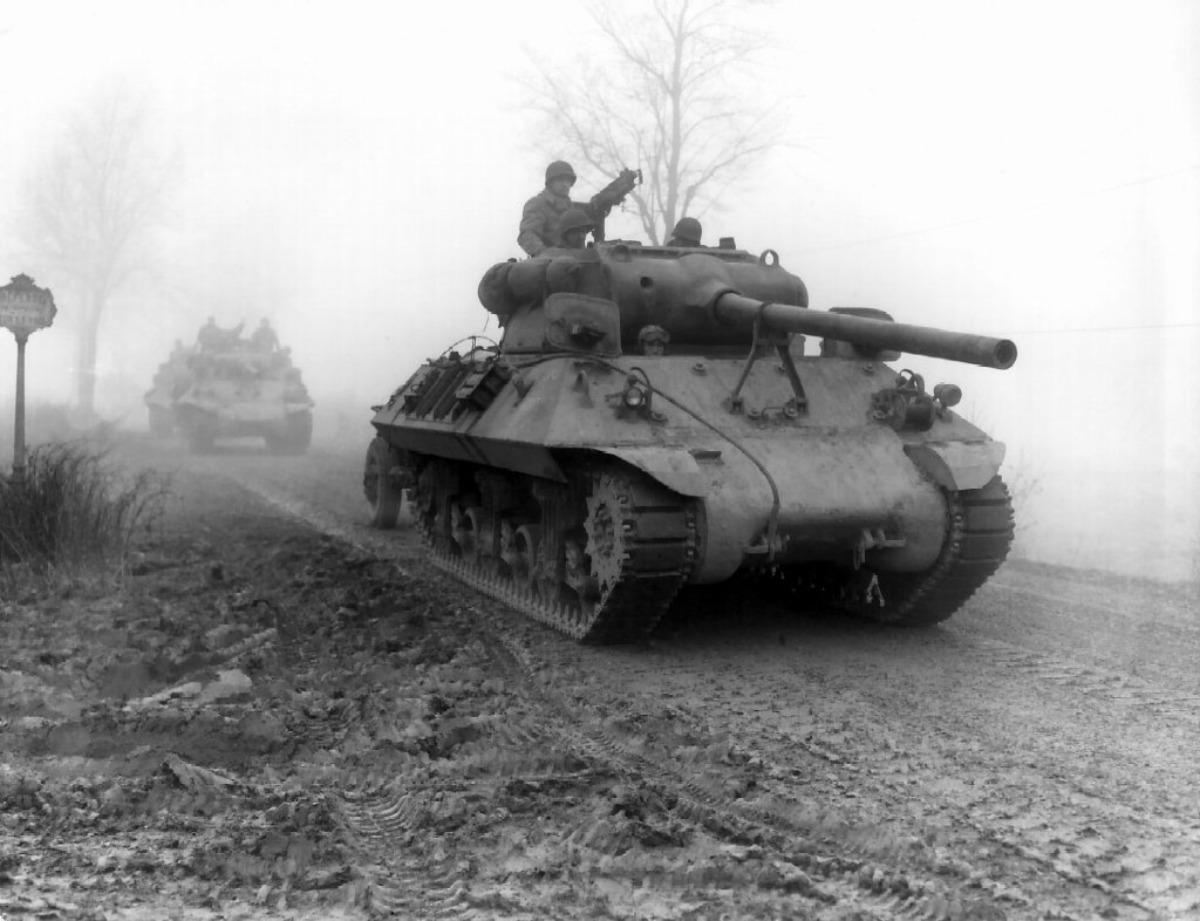
• • •
Missing some Tweet in this thread? You can try to
force a refresh
